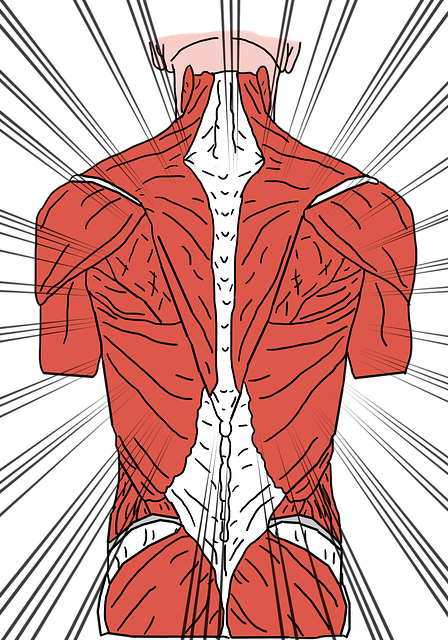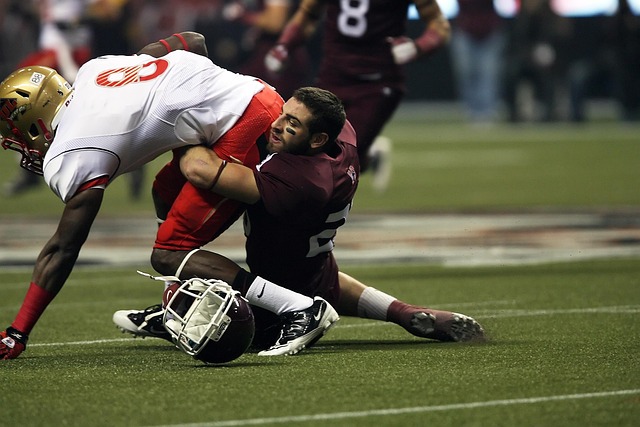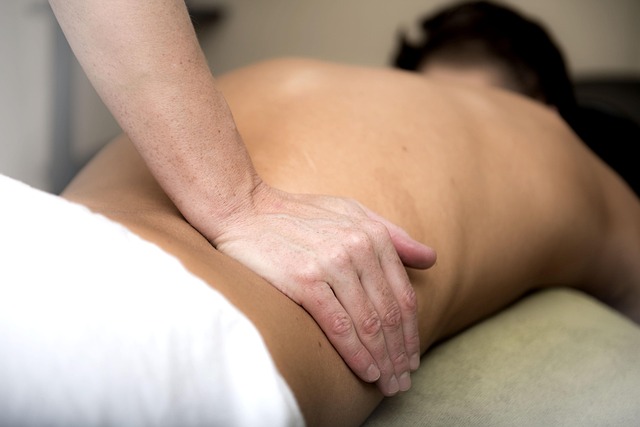After a car crash, sudden muscle cramps can be common and distressing, caused by trauma disrupting the nervous system. Chiropractic support offers an effective natural treatment, focusing on correcting spinal misalignments to reduce nerve pressure and improve brain-muscle communication. Chiropractors combine adjustments with therapies like heat/ice, stretching, and manual techniques to provide relief from acute and chronic muscle discomfort, promoting faster recovery and improved mobility for individuals experiencing post-accident spasms. Additionally, prevention strategies include staying hydrated and maintaining an adequate electrolyte balance, alongside regular stretching exercises.
Sudden, sharp muscle cramps after a car crash can be disorienting and painful. This unexpected symptom often arises from the physical trauma experienced during an accident. Understanding these post-crash cramp episodes is crucial for efficient recovery. This article delves into the causes of sudden muscle cramps, focusing on the role of chiropractic support in managing motor vehicle accident-related spasms. We also explore effective strategies to prevent and recover from these distressing symptoms.
- Understanding Sudden Muscle Cramps After a Crash
- The Role of Chiropractic Support in Managing Motor Vehicle Accident-Related Spasms
- Effective Strategies for Recovery and Prevention Post-Crash Muscle Cramps
Understanding Sudden Muscle Cramps After a Crash

Sudden muscle cramps after a crash can be a common and often distressing symptom, affecting individuals involved in motor vehicle accidents. These spasms are characterized by unexpected, intense contractions of muscles, typically occurring within minutes or hours following the incident. While they may seem random, there’s a physiological explanation behind these sudden cramps.
Chiropractic support plays a significant role in managing muscle spasms resulting from car crashes. The impact and subsequent trauma to the body can disrupt the nervous system and muscular balance. Chiropractic care focuses on identifying and correcting misalignments in the spine, which can alleviate pressure on nerve roots and restore proper communication between the brain and muscles. This natural approach to healing can effectively reduce muscle cramps and spasms associated with vehicular accidents, promoting faster recovery and improved mobility.
The Role of Chiropractic Support in Managing Motor Vehicle Accident-Related Spasms

Chiropractors are healthcare professionals who specialize in the diagnosis and treatment of musculoskeletal disorders, including those caused by motor vehicle accidents. When a person experiences sudden muscle cramps or spasms after a crash, chiropractic support can play a crucial role in managing these symptoms. Chiropractic care focuses on adjusting and manipulating the spine to improve nerve function and reduce muscle tension.
Chiropractic adjustments can help alleviate pressure on nerves affected during the accident, promoting better blood flow and reducing the frequency and intensity of muscle spasms. Additionally, chiropractors may incorporate other therapeutic techniques, such as heat or ice therapy, stretching exercises, and manual therapies, to provide comprehensive care for accident-related muscle discomfort. This holistic approach ensures that individuals receive effective relief from both acute and chronic pain resulting from motor vehicle accident-related muscle spasms.
Effective Strategies for Recovery and Prevention Post-Crash Muscle Cramps

After a car crash, sudden and intense muscle cramps can be a common and distressing symptom. To aid recovery and prevent future episodes, several strategies can be employed. One effective approach is seeking chiropractic support for motor vehicle accident-related muscle spasms. Chiropractors specialize in diagnosing and treating musculoskeletal disorders, offering adjustments to alleviate tension and restore proper nerve function. This natural healing method can significantly reduce post-crash cramps and associated pain.
Additionally, incorporating stretching exercises into your daily routine is beneficial. Targeting the affected muscles with gentle yet deliberate stretches promotes flexibility and prevents tightness that leads to spasms. Staying hydrated and ensuring adequate electrolyte balance is also crucial. Cramps often result from dehydration or mineral deficiencies, so maintaining optimal fluid intake can significantly reduce their frequency and severity.
Sudden muscle cramps after a crash can significantly impact an individual’s recovery. By understanding the underlying causes, such as trauma and stress on muscles, and leveraging effective strategies for prevention and recovery, victims can mitigate post-crash discomfort. Chiropractic support plays a crucial role in managing motor vehicle accident-related spasms by addressing joint misalignments and promoting muscle relaxation. Adopting these practices ensures a smoother transition back to daily activities while reducing the risk of future muscle cramps.














